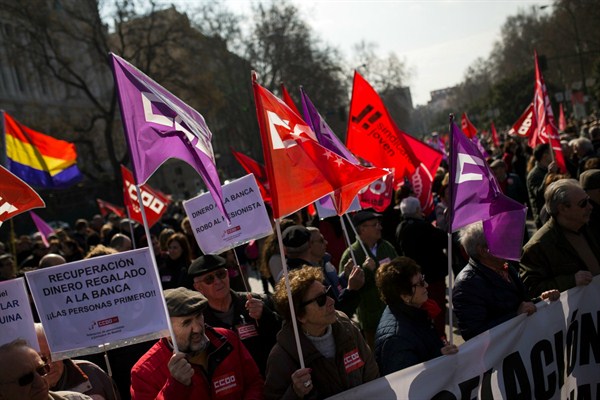Editor’s note: This article is part of an ongoing WPR series about workers’ rights in various countries around the world.
Dockworkers in Spain announced a series of strikes yesterday to protest a government plan to allow ports to hire nonunion workers. The strikes are set to begin March 6, although talks continue between the government and the unions. In an email interview, Alexandre de le Court, a visiting professor at the Pompeu Fabra University of Barcelona and member of the UPF Research Group in Labor Law and Social Security Law (greDTiSS), discusses labor rights in Spain.
WPR: How robust are protections for workers in Spain with regard to the right to organize, both in law and practice, and what protections do workers have in terms of labor standards and wages?

